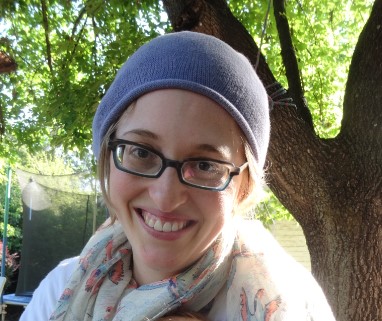When Tragedy Strikes


No parents want their child to face tragedy. But with the right parental response and guidance a child can gain tools and depth for life. He can grow through his loss into an adult who is sensitive and empathetic
W e kiss their boo-boos and wipe away their tears. Whether we’re dealing with a scraped knee or an argument with a friend as parents we’re confident in our ability to smooth life’s rough edges and provide comfort and stability. But there’s one experience parents cannot diminish: death and bereavement.
No parents want their child to face tragedy. But with the right parental response and guidance a child can gain tools and depth for life. He can grow through his loss into an adult who is sensitive and empathetic. A child can be strengthened by the lifelong lesson that while grief may feel insurmountable it can be worked through and eventually transform into sweet sorrow and appreciation.
No Single Formula
“There’s no textbook answer for how to support a child who has experienced tragedy” says Atara Weinstein a Jerusalem family therapist who specializes in working with adolescents and survivors of trauma. However she emphasizes there are useful contexts to keep in mind that can help a parent make educated decisions in supporting the grieving process. Specifically she suggests looking at the child’s state of development — physiological cognitive psychological and social.
“Does he or she have the capacity to tolerate strong emotions? And is he capable of verbalizing these emotions?” says Weinstein. Additionally she suggests considering several important factors: what type of death was it — expected or traumatic? What was the child’s relationship with the deceased?
The next thing to consider is the child’s relationship with his parents. “The deeper the parents’ understanding of the child’s emotional makeup the easier it will be for the parents to create an individualized path to support their child.”
Shanna a stay-at-home mother from Los Angeles says that her 13-year-old son’s previous struggle with anxiety actually empowered her to help her son grieve after he witnessed a close friend’s fatal accident.
“One afternoon I received a call from the school that there had been an accident and my son was very upset. They asked me to pick him up. It turned out that my son and his friend had been standing together at recess and out of nowhere a boundary wall collapsed. Miraculously my son wasn’t harmed but the concrete panel fell on his friend. My son watched the whole thing happen — his friend lying unconscious next to him Hatzolah rushing in and trying to stabilize him. The boy was in a coma for four days before he died.”

“The Torah allows for periods of pain. We are allowed to feel pain anger and grief. When a child is in the throes of these emotions it’s not the time to give chizuk or teach emunah”
When Shanna arrived at the school her son was in the classroom crying hysterically. “Watching your child in such pain is a heartrending experience” she says. While Shanna couldn’t change what had happened she did have a solid and in-depth understanding of her son’s emotional landscape.
“We’d been working with therapists because of his anxiety; therefore I knew how best to deal with him. I knew how far I could push him and how much space he needed. I had seen how he responded to extreme emotion.”
Shanna knew that her son would need his space and that he’d resist pressure to talk. “I watched closely from the sidelines and showed him I was present. When I pushed too hard — like trying to take him for trauma debriefing — he got angry and I realized I needed to step back.” Knowing her son’s emotional limits Shanna insisted that he not attend the levayah. “It turned out that he didn’t want to. He knew he couldn’t handle it. But he did want to go and talk to his friend’s mother after the shivah.
“I’d knock on his door and ask him if I could come in and sit. Sometimes he’d open up and sometimes not. If he’d let me in I’d just sit. If I wanted to give him a hug I’d ask him first. I was very present very aware of his vulnerability but hugely aware not to overstep.”
While Shanna was fortunate to have such a close and trusting relationship with her son she still admits that she wasn’t sure that she was doing the right thing. “I mostly just trusted my gut and figured it out alone.” (Excerpted from Family First Issue 561)
Oops! We could not locate your form.







